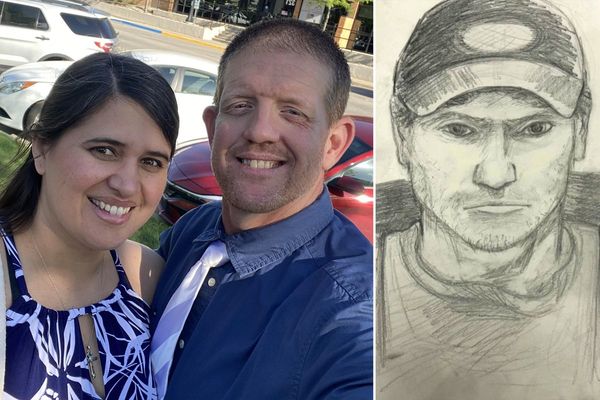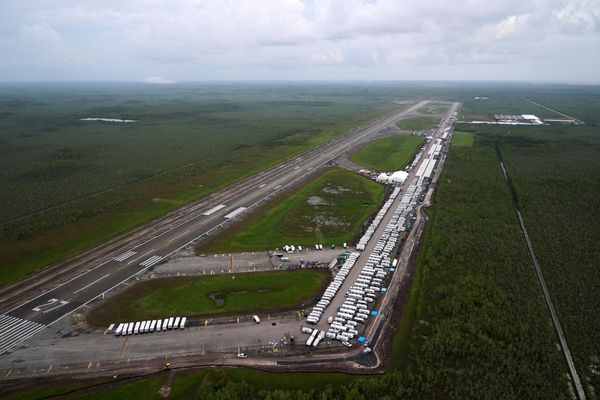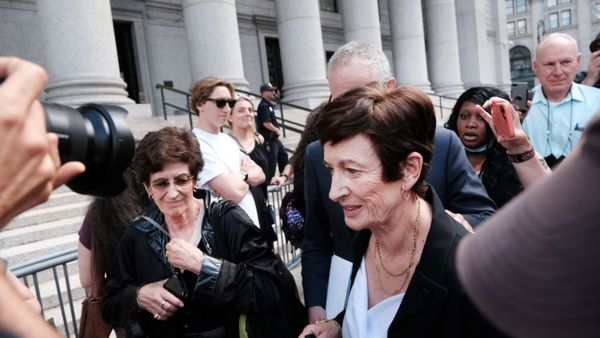
Before we kick off, let’s not forget that this is the least serious of the criminal cases former US president Donald Trump is facing in the next year or so. The coming cases concern things like Trump’s alleged mishandling of classified documents and of course the alleged attempts to overthrow the results of the 2020 election. But this week the court is focused on the comparatively tame allegations regarding Trump’s efforts to mitigate negative stories about himself back when he was a mere presidential hopeful.
The opening statements from prosecutors in Manhattan allege Trump was involved in a “criminal conspiracy” to “catch and kill” negative stories in the lead-up to the 2016 election.
A veritable constellation of Australian names have orbited Trump over the years for various reasons (think Col Allan, Miranda Devine, Nick Adams, Gina Rinehart, Anthony Pratt) — but they don’t have anything to do with this trial. That honour belongs to Australian journalist Dylan Howard — this week it’s the former editor in chief of the National Enquirer‘s time to shine.
Catch and Kill
Most high profile among the prosecutors’ allegations is that Trump’s then lawyer Michael Cohen made a $130,000 payment to Stormy Daniels to buy her silence towards the end of the 2016 campaign and was reimbursed by Trump, who then falsified business records to conceal the payment. But this is just the start.
Prosecutors allege the “conspiracy” dates from an August 2015 meeting at Trump Tower in Manhattan, shortly after Trump had decided to run for office; Trump and Cohen met David Pecker, an executive at the parent company of the National Enquirer, American Media Inc (AMI) and asked him to be Trump’s “eyes and ears” during the campaign, keeping Cohen informed as to any negative stories circulating about Trump.
Among the alleged quashed stories is that of Playboy model Karen McDougal. Her lawyer Keith Davidson had contacted Dylan Howard in 2016, the then editor in chief of the National Enquirer, offering a “blockbuster Trump” story about an affair she’d had with him years earlier.
Howard is back in his native Australia now, and according to Pecker’s testimony, is unable to travel due to ill health. Back in 2016, he flew to California to meet McDougal and Davidson, before AMI allegedly paid her $US150,000 to kill the story.
All for sport
Howard is a classic example of the pure amphetamine tabloid mindset. Still only 42, he started as a sports writer at the Geelong Advertiser in Victoria, eventually splitting his work between that masthead and his new job as a Seven News sports reporter. He first came to prominence in 2007, when he reported on two AFL players’ private medical records — appropriately enough, these were supposedly “found” by a member of the public in the gutter, who sold them to Seven for $3,000 — that revealed illegal drug use by the players. Howard named the club the players were with. After a prolonged scandal, Howard was cleared by a police investigation, and left Seven when his contract wasn’t renewed.
He reinvented himself as a gossip reporter, turning up in such edifying spots as being identified as the source of a naked picture of Lara Bingle and alongside Charlie Sheen as he did a urine test. But it was in the aftermath of the Harvey Weinstein scandal that Howard would come to his greatest notoriety.
Harvey Weinstein and extortion
In Ronan Farrow’s 2017 work on the scandal for The New Yorker, it was revealed that Weinstein enlisted Howard — who had by now worked his way up the ranks at the National Enquirer — to dig up dirt on women who raised allegations against him. This included an email chain between the pair concerning Howard’s hunt for dirt on accuser Rose McGowan. Howard has said he resisted Weinstein’s request for him to publish those stories in the Enquirer.
In 2019, tech billionaire and owner of The Washington Post Jeff Bezos published the full text of a letter from Howard which detailed intimate images and texts the publication claimed to have, and threatened to publish them unless Bezos backed down on an investigation that accused National Enquirer of politically motivated attacks on him.
But by the time Farrow’s book on the Weinstein saga Catch and Kill was ready to publish, Howard had really shifted his view on publishing damaging information about people.
Howard’s lawyers sent legal letters to booksellers saying Howard “apprehends the book will contain content defamatory of him”, warning that if that turned out to be the case, he would sue the author, the publisher and even, unusually, the distributors.
Amazon briefly yielded, before making the book available to Australian customers.







